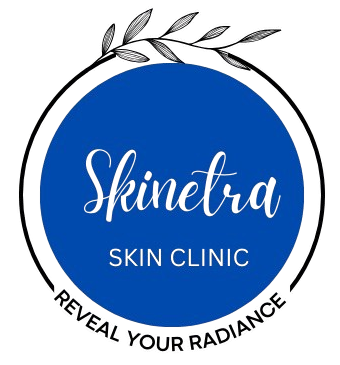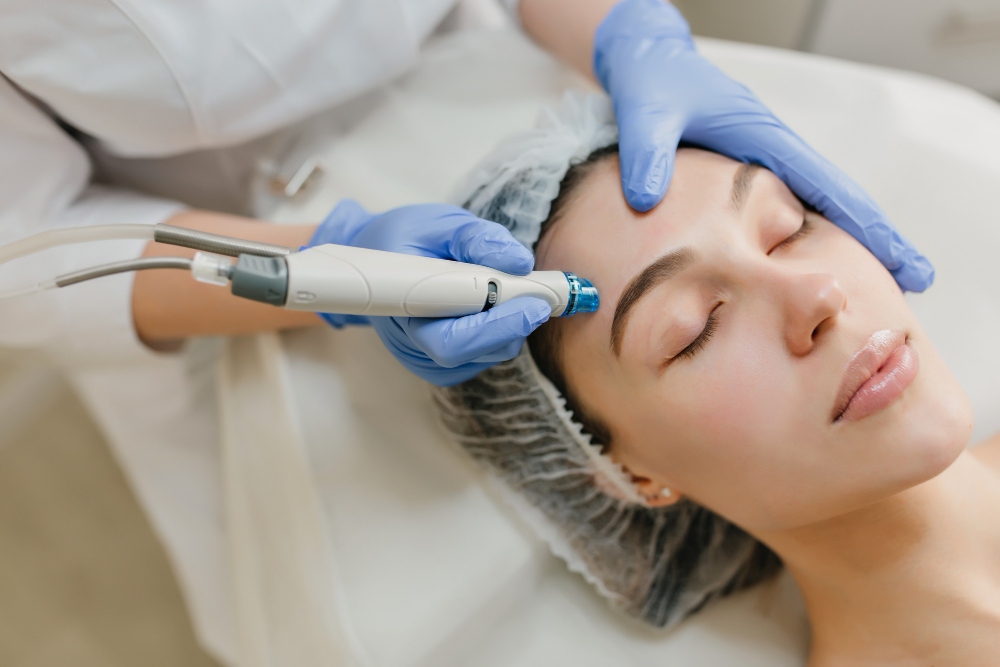What is a Hydrafacial?
A Hydrafacial is a popular skin treatment that uses a special device to clean, exfoliate, and hydrate your skin. Many people choose Hydrafacial because it is gentle and gives quick results. Unlike some other treatments, a Hydrafacial does not use harsh chemicals. Instead, it combines cleansing, exfoliation, and hydration in one session. As a result, your skin can look brighter and feel smoother right away.
How Does a Hydrafacial Work?
During a Hydrafacial, a trained professional uses a machine with a unique tip. First, the tip cleans your skin and removes dead skin cells. Next, it gently suctions out dirt and oil from your pores. After that, the device delivers special serums to hydrate and protect your skin. Because the process is gentle, most people feel only a mild, pleasant sensation. The entire treatment usually takes about 30 to 45 minutes.
Benefits of Hydrafacial
Many people love Hydrafacial for its quick and visible results. Some key benefits include:
Additionally, Hydrafacial can help reduce the look of fine lines and mild acne. Because it is non-invasive, there is little to no downtime. According to dermatology studies, regular Hydrafacial treatments can support healthy skin (Journal of Clinical and Aesthetic Dermatology).
Who Should Consider a Hydrafacial?
Almost anyone can benefit from a Hydrafacial. However, it is especially helpful for people who want:
On the other hand, people with active skin infections or certain allergies should talk to a dermatologist first. If you are pregnant or have a skin condition, always check with your doctor before trying a Hydrafacial.
Possible Side Effects and Risks
For most people, Hydrafacial is safe and gentle. Still, some may notice mild redness or tightness right after the treatment. Usually, these effects go away within a few hours. Rarely, people may have an allergic reaction to the serums used. Therefore, always tell your provider about any allergies or skin sensitivities. If you have concerns, ask your dermatologist about possible risks. The American Academy of Dermatology suggests choosing a certified provider for best results.
How to Prepare for a Hydrafacial
Preparing for a Hydrafacial is simple. To get the best results, follow these tips:
By following these steps, you help ensure your skin is ready for treatment. As a result, you may see better and longer-lasting effects.
Aftercare and Results
After a Hydrafacial, your skin may look brighter and feel smoother right away. Most people can return to normal activities the same day. However, it is best to avoid heavy makeup or strong skin products for 24 hours. Also, remember to use sunscreen, as your skin may be more sensitive to sunlight. For lasting results, your provider may suggest regular treatments every four to six weeks. According to experts, ongoing care can help keep your skin healthy and glowing.
Frequently Asked Questions about Hydrafacial
If you want glowing, healthy skin, a Hydrafacial may be a good choice. Consult a certified dermatologist to see if Hydrafacial is right for you.

